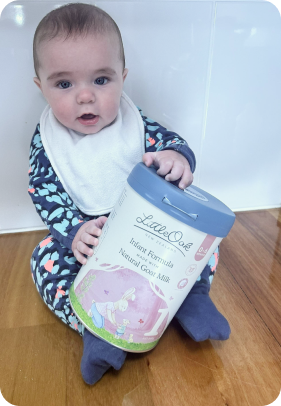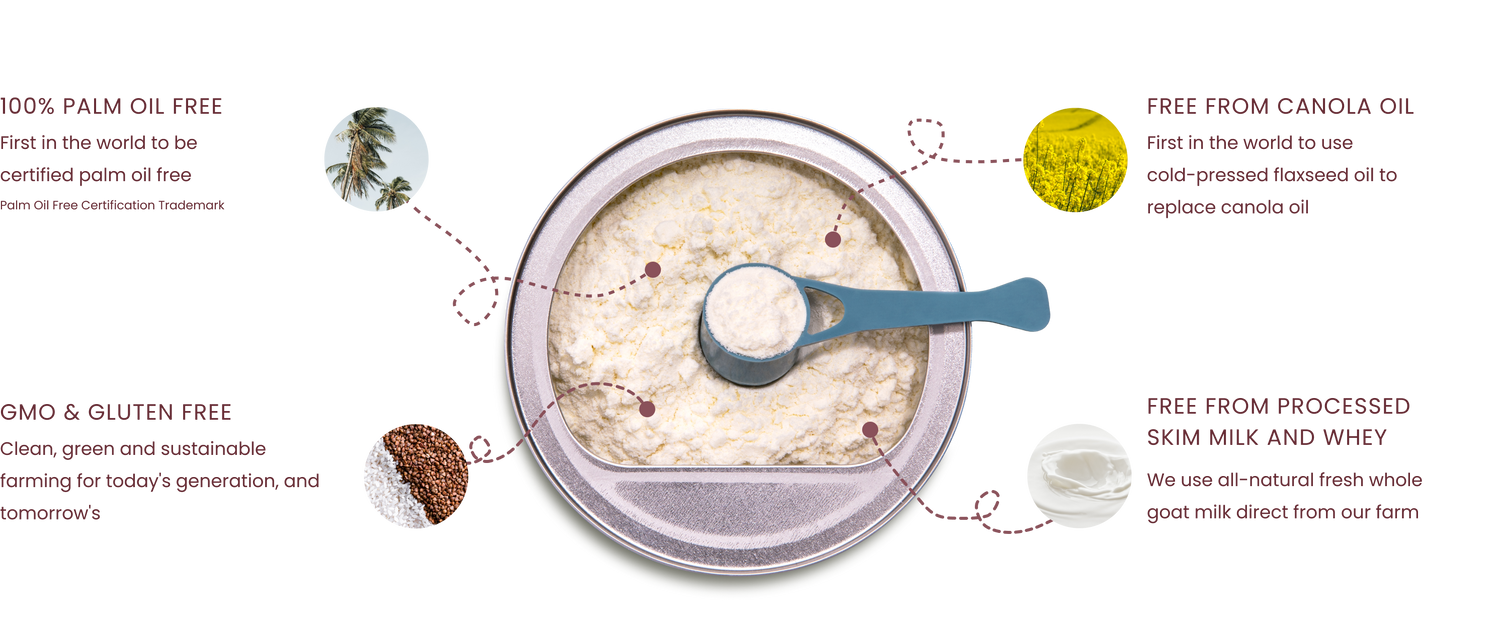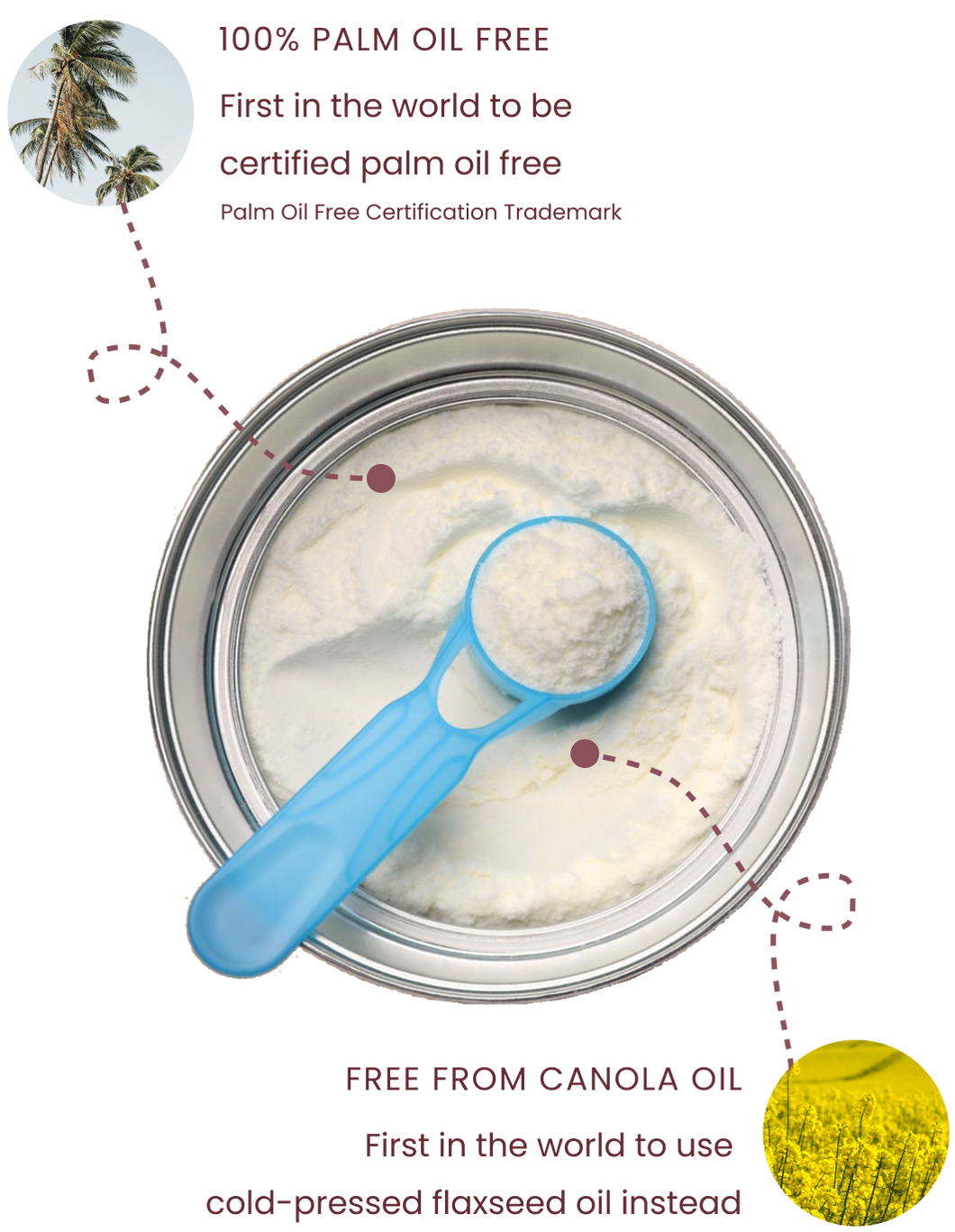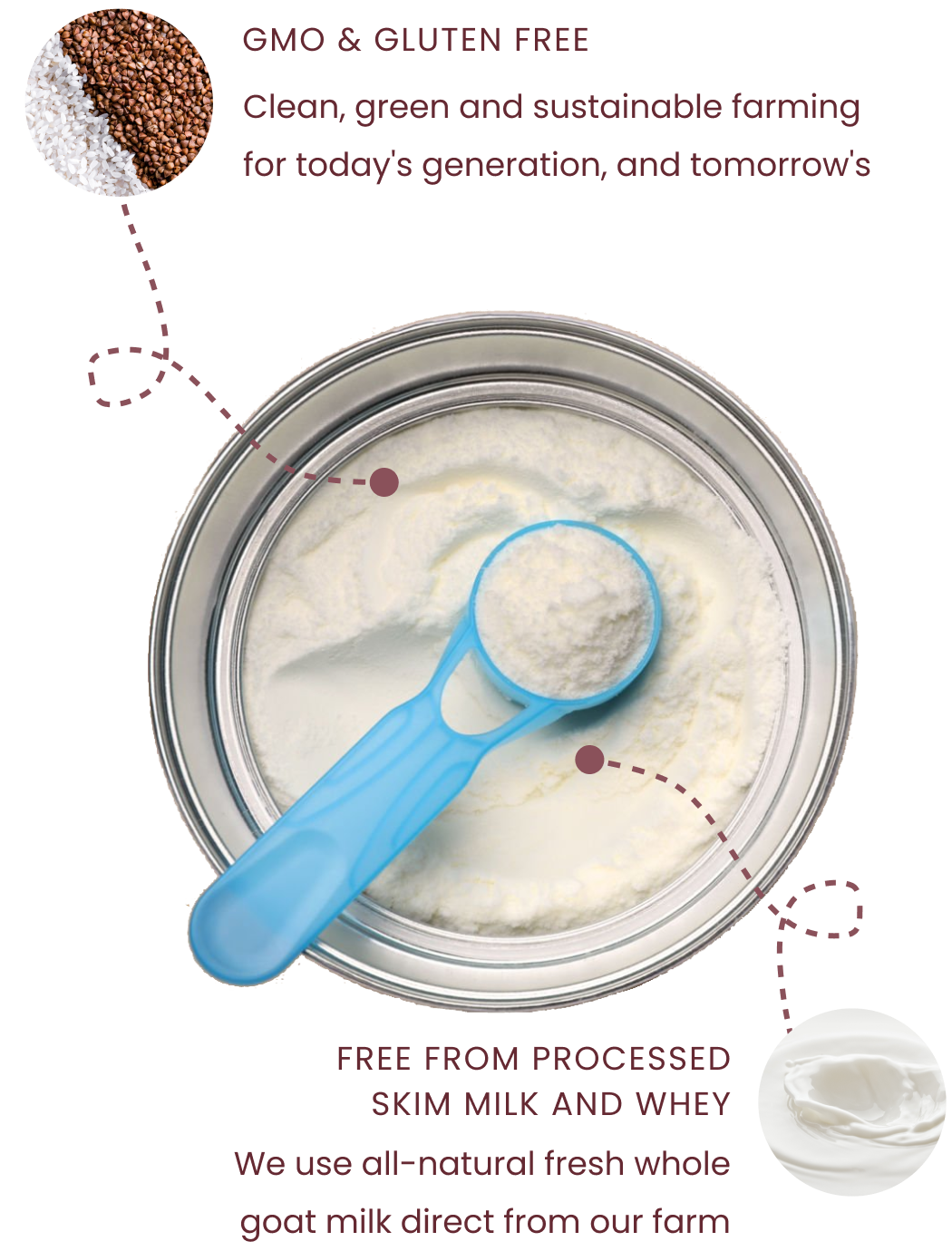By Dr. Anna Garber, MSc, ND
Choosing the right milk for your child is a decision that can impact their growth and development. While cow's milk has long been a staple in many households, goat milk is gaining attention for its potential nutritional benefits. Goat milk can play a beneficial role in infant and childhood nutrition due to its digestibility, higher nutrient content in certain areas, and potential for reduced allergenicity compared to cow's milk. However, it's important for parents to be aware of some considerations, such as lower levels of certain vitamins like B12, folate, and vitamin D.. Let’s explore the comparative advantages and limitations of goat milk versus cow's milk. Understanding these factors can empower parents to make informed choices regarding their child's dietary needs and overall health.
Benefits of Goat Milk Over Cow's Milk:
-
Digestibility: Goat's milk contains smaller fat globules and a different protein structure compared to cow's milk. This makes it easier to digest for some individuals, especially those with lactose intolerance or sensitivity to cow's milk proteins.
-
Nutrient Content: Goat's milk is naturally higher in certain nutrients like calcium, potassium, and vitamin A. These nutrients are essential for bone health, electrolyte balance, and vision development in children.
- Potential to be Less Allergenic: Goat’s milk allergy is reported less frequently than cow’s milk allergy. Some children who cannot tolerate cow's milk due to allergies or sensitivities may tolerate goat's milk. This is because the protein composition of goat's milk is different from that of cow's milk, potentially causing fewer allergic reactions. However, this is not the case for every child and some children that have an allergy or sensitivity to cow’s milk may also react to goat’s milk.
Considerations:
-
Lower Vitamin B12: Goat's milk typically contains less vitamin B12 compared to cow's milk. This vitamin is crucial for healthy growth and development, particularly for neurological and cognitive functions. However, infants and children can get adequate vitamin B12 intake through other foods such as animal products (beef, chicken, pork, fish, eggs), fortified cereals, and/or nutritional yeast.
-
Lower Folate: While cow's milk naturally contains a modest amount of folate, goat's milk typically has significantly lower levels. Folate, also known as vitamin B9, is crucial for cell division and DNA synthesis, making it especially important for growing infants and children. Parents should be mindful of this difference and ensure that their child's diet includes other folate-rich foods such as leafy greens, legumes, fortified cereals, and fruits to meet their folate requirements.
-
Lower Vitamin D: Goat's milk may have lower vitamin D content unless it's fortified. Vitamin D is essential for calcium absorption and bone health, so supplementation may be necessary if relying solely on goat's milk. Depending on what area of the world you reside in, vitamin D supplementation is often recommended to infants and children, particularly in countries that are further away from the equator.
In conclusion, both goat's milk and cow’s milk have their advantages and drawbacks when it comes to infant and childhood nutrition. It's essential for parents to consider their child's specific nutritional needs, any allergies or sensitivities, and factors like taste preferences and cost when choosing between these two types of milk. Consulting with a pediatrician, registered dietitian, or children’s nutritionist can also provide personalized guidance based on the child's health and dietary requirements.
References
Folate: Fact Sheet for Health Professionals. NIH Office of Dietary Supplements. Updated November 30, 2022. Accessed April 18, 2024. https://ods.od.nih.gov/factsheets/Folate-HealthProfessional/
Prosser CG. Compositional and functional characteristics of goat milk and relevance as a base for infant formula. J Food Sci. 2021;86(2):257-265.
Turck D. Cow’s milk and goat’s milk. World Rev Nutr Diet. 2013;108:56-62.
Verduci E, D’Elios S, Cerrato L, et al. Cow’s milk substitutes for children: nutritional aspects of milk from different mammalian species, special formula and plant-based beverages. Nutrients. 2019;11(8):1739.
Vitamin B12: Fact Sheet for Health Professionals. NIH Office of Dietary Supplements. Updated March 26, 2024. Accessed April 18, 2024. https://ods.od.nih.gov/factsheets/VitaminB12-HealthProfessional/
Vitamin D: Fact Sheet for Health Professionals. NIH Office of Dietary Supplements. Updated September 18, 2023. Accessed April 18, 2024. https://ods.od.nih.gov/factsheets/VitaminD-HealthProfessional/
To learn more from Dr. Garber, visit her website here.





























